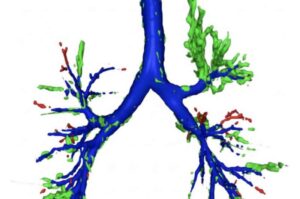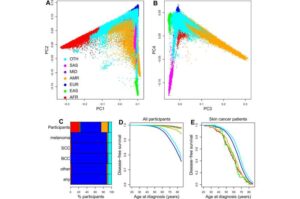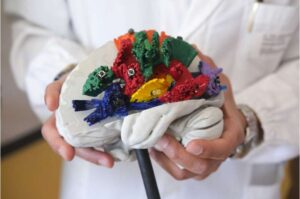
FDA clears ViTAA Medical’s AI aortic surgery planning tool
ViTAA’s FDA clearance on its AiORTA tool represents the first part of its planned full-suite aortic care platform.

ViTAA’s FDA clearance on its AiORTA tool represents the first part of its planned full-suite aortic care platform.

There are more candidates on the waitlist for a liver transplant than there are available organs, yet about half the time a match is found with a donor who dies after cardiac arrest following the removal of life support, the transplant must be canceled.

In a move for women’s health, menstrual health startup Joii is launching the world’s first AI-powered app that accurately measures period blood volume in the UK, transforming a guessing game into hard data that benefits patients and clinicians alike.

Researchers at the University of Southampton have developed an artificial intelligence (AI) tool that can spot hard-to-see objects lodged in patients’ airways better than expert radiologists.

Stanford Health Policy researchers built a model to test whether AI could effectively manage disease spread between prisons and surrounding communities. The results were decisive.

Researchers from Deakin University, Black Dog Institute and UNSW have completed an AI-optimized trial testing digital mental health interventions for university students experiencing psychological distress.

Researchers at the University of California San Diego School of Medicine have developed a new approach for identifying individuals with skin cancer that combines genetic ancestry, lifestyle and social determinants of health using a machine learning model. Their model, more accurate than existing approaches, also helped the researchers better characterize disparities in skin cancer risk and outcomes.

Few primary care practices are designed for the timely detection of Alzheimer’s disease and related dementias. The limited time that primary care clinicians are able to spend with patients, the need to focus on the health problems that brought the patient to the clinic, as well as the stigma of Alzheimer’s disease and dementia are major reasons for lack of recognition of the condition.

BraDiPho (Brain Dissection Photogrammetry) is an innovative tool for the study of white matter connections in the human brain. The realistic map was developed by a group of researchers from the University of Trento, the Provincial Healthcare Service of Trento, Fondazione Bruno Kessler and the Universities of Bordeaux and Sherbrooke.

Artificial intelligence (AI) and “protein language” models can speed the design of monoclonal antibodies that prevent or reduce the severity of potentially life-threatening viral infections, according to a multi-institutional study led by researchers at Vanderbilt University Medical Center.